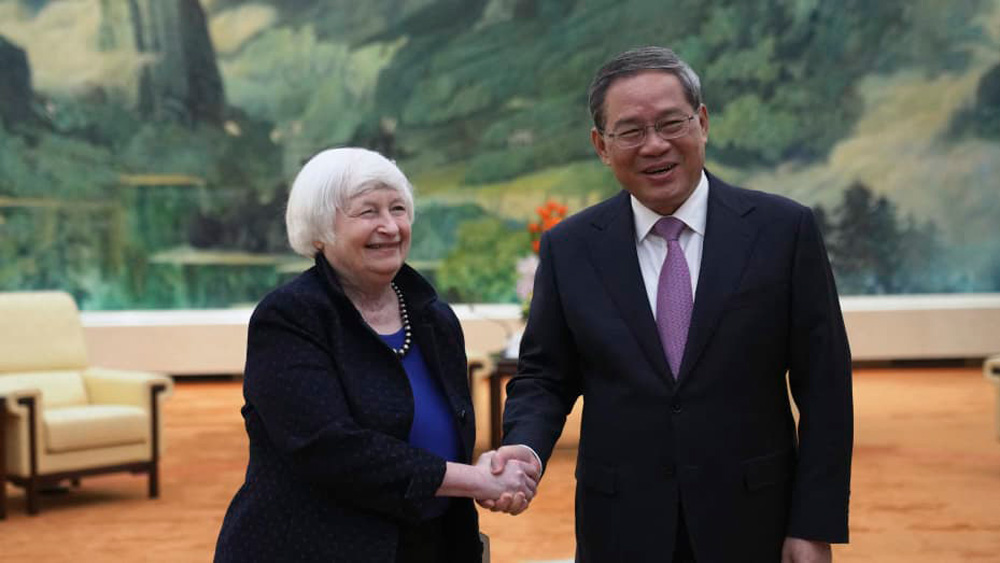In a significant development aimed at addressing concerns over overcapacity, the United States and China have agreed to hold talks on achieving “balanced” economic growth. U.S. Treasury Secretary Janet Yellen announced the agreement after a series of discussions with Chinese Vice Premier He Lifeng in Guangzhou, China. The talks also included discussions on cooperation in anti-money laundering efforts. The dialogue between the two economic powerhouses seeks to advance mutual understanding and find solutions to challenges that have implications for global trade and economic stability.
Addressing Overcapacity Concerns
One of the primary issues discussed during the talks was China’s excess manufacturing capacity, particularly in sectors such as electric vehicles (EVs), solar panels, and clean energy technology. The U.S. has expressed concerns that China’s overproduction in these areas poses a threat to American firms and workers. Secretary Yellen emphasized the importance of creating a level playing field for American businesses and advocating for fair competition.
While the Biden administration faces increasing pressure from lawmakers to impose tariffs on Chinese EVs, Yellen did not issue any immediate threats during the discussions. Instead, she highlighted the need for a structured forum to address the complex issue of overcapacity. This forum would serve as a platform to discuss macroeconomic imbalances and explore the connection between overcapacity and trade. Yellen acknowledged that resolving these issues would require time and cooperation between the two countries.
Productive Talks and Bilateral Relations
Yellen described the discussions with Vice Premier He as productive and frank, indicating a willingness on both sides to engage in constructive dialogue. The establishment of a balanced growth forum was seen as a positive step forward. However, there are concerns that the forum could become a stalling tactic if not accompanied by concrete actions from Beijing to address the supply-demand imbalance.
China’s Xinhua news agency also characterized the talks as candid, pragmatic, and constructive. It stressed that China had expressed serious concerns about U.S. economic and trade restrictions, highlighting the importance of a comprehensive dialogue to resolve differences. The discussions covered a wide range of topics, including financial stability, and aimed to enhance cooperation between the two nations.
Broader Implications and Future Prospects
The talks between the U.S. and China on balanced growth carry significant implications for both countries and the global economy. As the world’s two largest economies, their collaborative efforts to address overcapacity can have far-reaching effects on trade dynamics and market stability. Achieving a level playing field is crucial for fostering fair competition and ensuring sustainable growth.
The outcome of these discussions will also impact China’s relationships with other countries. As a major player in the global economy, China’s policies and actions have implications beyond its borders. By addressing concerns related to overcapacity, China can strengthen its economic ties and build trust with its trading partners.
Looking ahead, Secretary Yellen is set to continue her discussions in Beijing, where she will meet with high-ranking officials, including Premier Li Qiang, Finance Minister Lan Foan, and People’s Bank of China Governor Pan Gongsheng. These meetings provide further opportunities to deepen understanding, address shared challenges, and strengthen economic cooperation between the United States and China.









